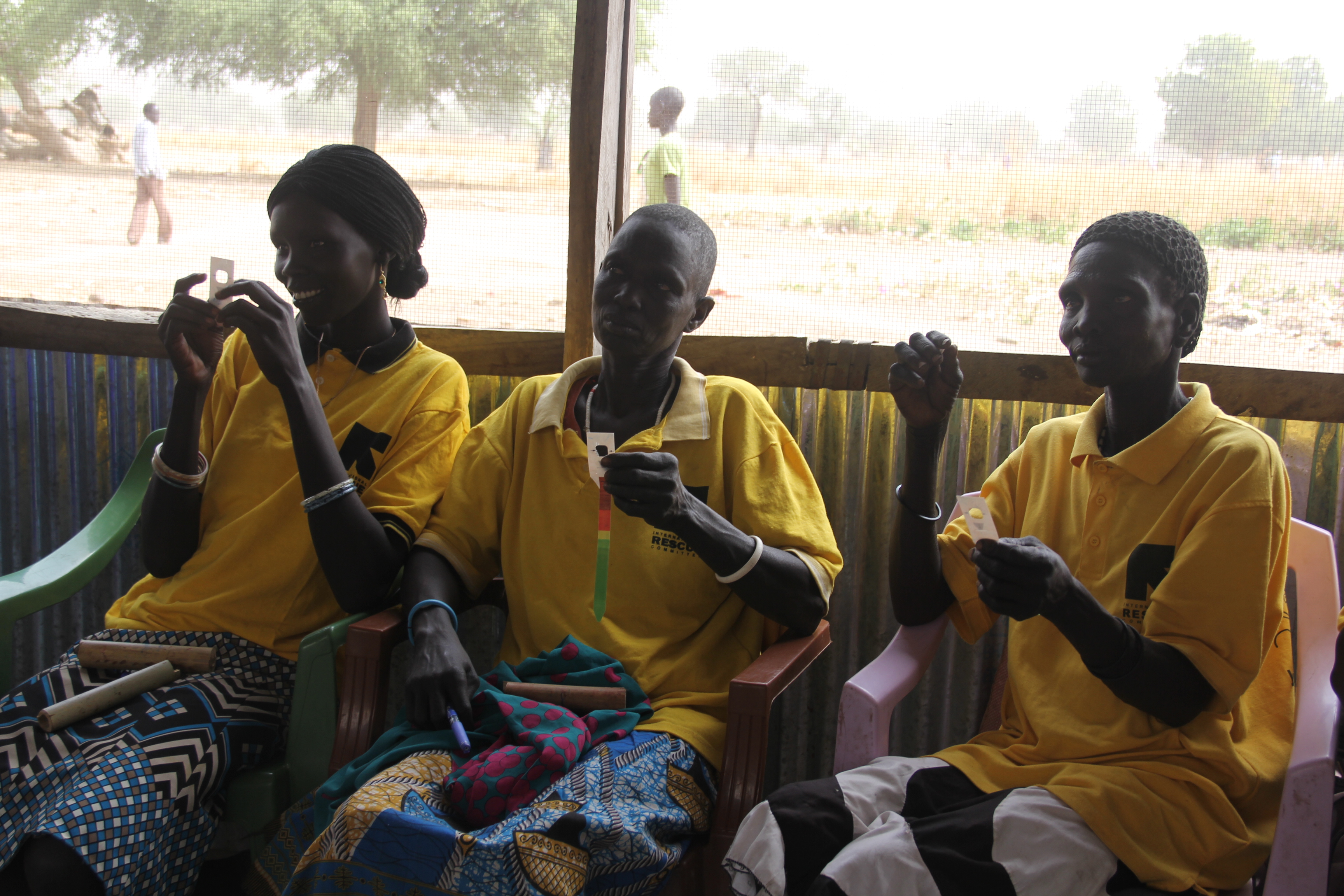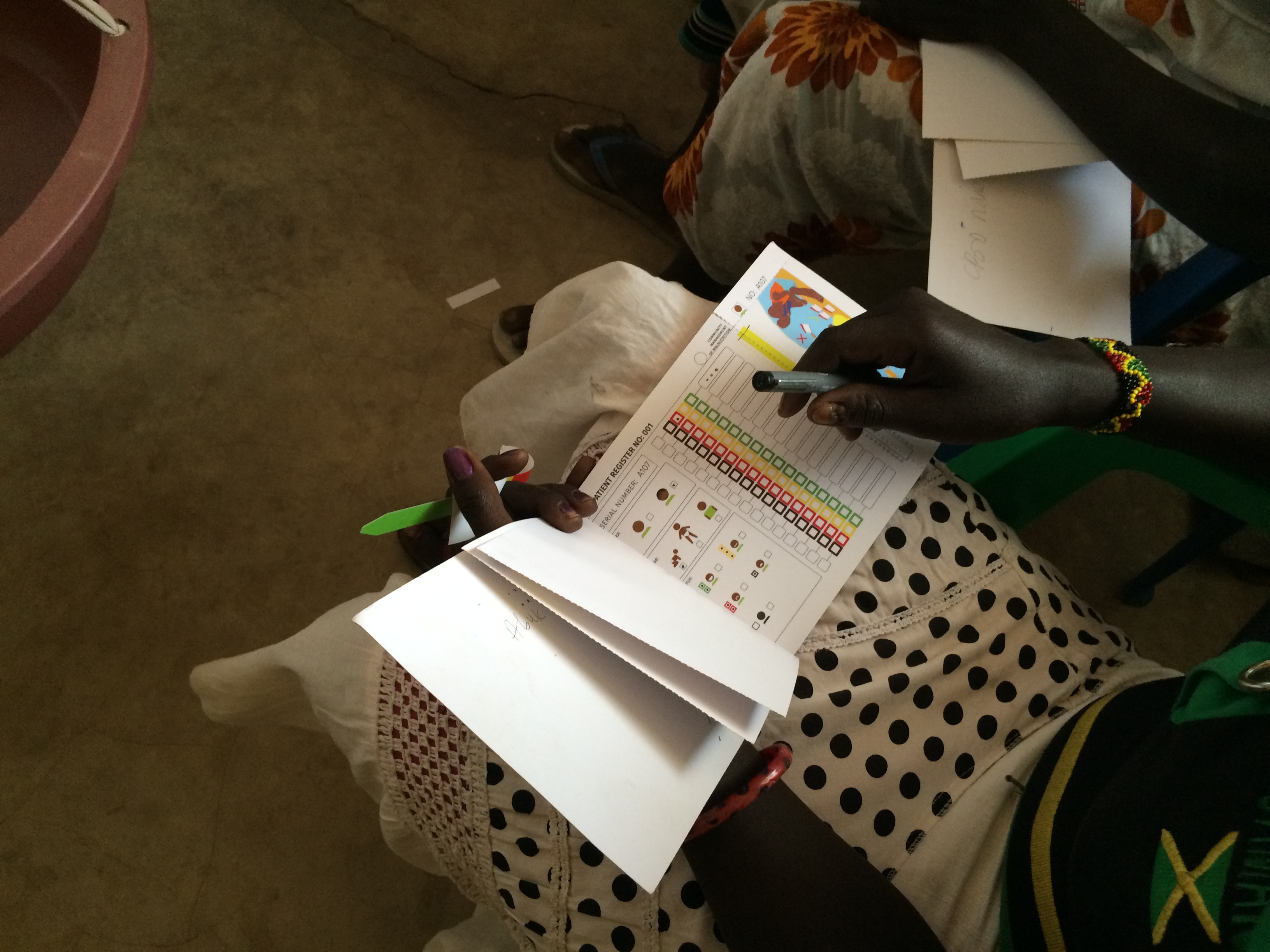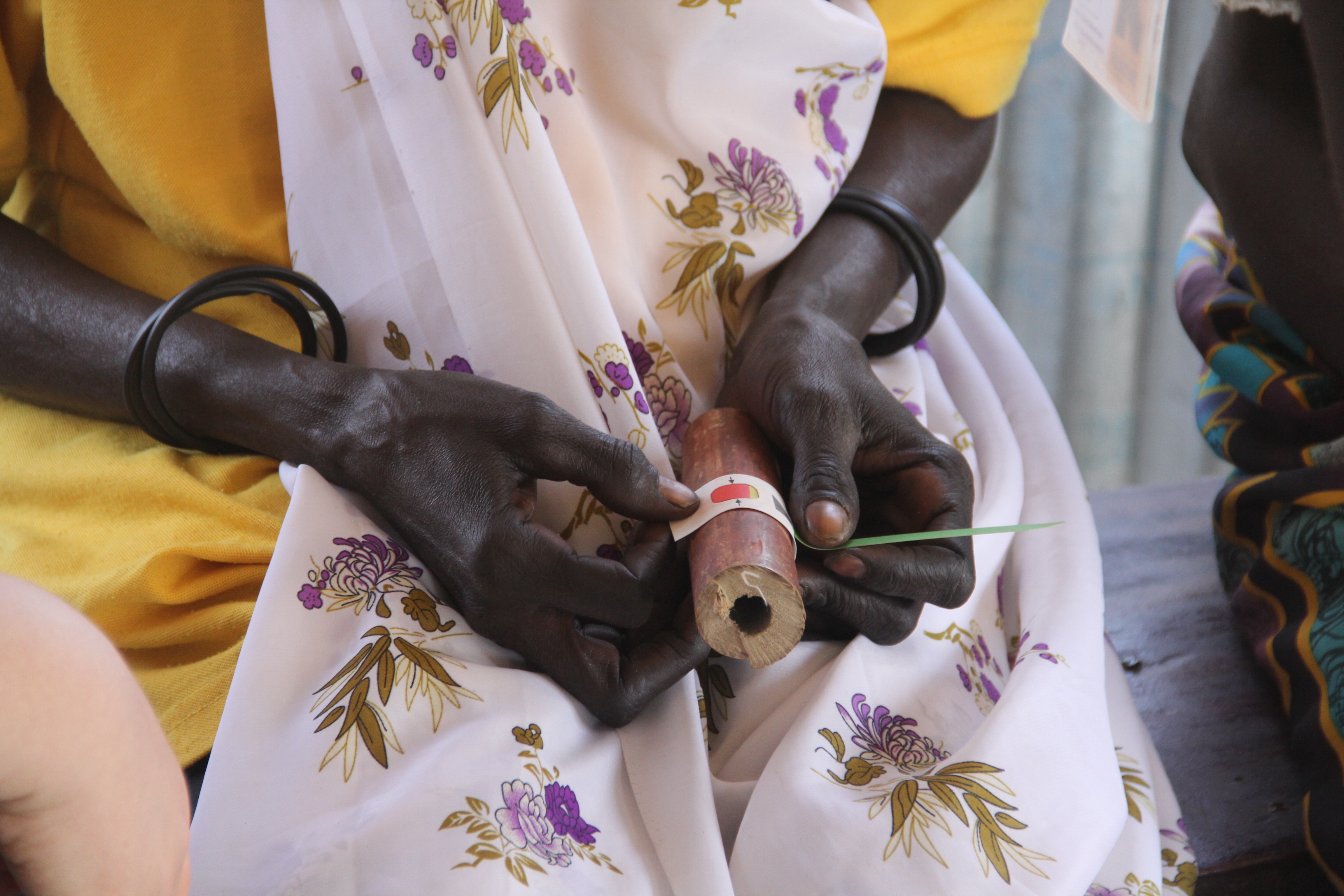
Community Health Worker-led Treatment of Acute Malnutrition
Reaching the last mile by equipping community health workers to treat acute malnutrition in their communities
Malaria, diarrhea, and pneumonia are the leading causes of death among children under five worldwide, with malnutrition contributing to half of these fatalities. Timely treatment is one of the most effective ways to reduce mortality, yet in many high-risk humanitarian settings, facility-based or mobile health services remain inaccessible to many communities.
Community health workers (CHWs), often volunteers connected to the local healthcare system, play a crucial role in bridging this gap. Their trusted status within the community helps establish credibility, even without formal medical training. In remote or crisis-affected areas where health facilities are out of reach, CHWs are often the first line of defense against preventable child deaths.
Through the integrated Community Case Management (iCCM) strategy, case management for these childhood illnesses is available outside static health facilities, enabling more children to have access to lifesaving treatments. With proper training on treatment procedures, ongoing supervision, and a reliable supply of medicines, even low-literate CHWs can accurately identify and treat most cases of pneumonia, malaria, and diarrhea.
Developing Simplified Treatment Tools
In 2016, IRC conducted a developed and tested low-literacy simplification tools in South Sudan to explore the integration of severe acute malnutrition (SAM) treatment into the existing integrated Community Case Management (iCCM) framework, which was already used to treat common childhood illnesses like pneumonia, malaria, and diarrhea. This field test aimed to evaluate whether low-literate CHW’s, with proper training and simplified treatment guidelines, could effectively identify and treat SAM in remote and crisis-affected communities.
The test involved 30 female, low-literate CHWs from Aweil South County, Northern Bahr el Ghazal state. Over several rounds of training and testing, CHWs were introduced to new tools designed to simplify SAM treatment, such as color-coded MUAC tapes and a simplified ready-to-use therapeutic food (RUTF) dosage scale. The tools were tested and refined based on feedback from the CHWs, who were closely observed during the process. This human-centered design approach ensured the tools were practical, easy to use, and culturally appropriate for the community health workers.

The Feasibility Study
The feasibility study, building on the 2016 field test, explored whether CHWs could effectively treat SAM using the simplified tools and treatment guidelines developed and refined under the design phase. The study involved 60 female CHWs in South Sudan, all trained for six days on the new protocol. After training, 44 CHWs were selected to treat 320 children with uncomplicated SAM between March and September 2017.

The results of the study were encouraging: children treated for SAM by the CHWs had a 91% recovery rate to moderate acute malnutrition (MAM) and a 75% full recovery rate. These outcomes demonstrated that CHWs, even with limited literacy, could successfully treat SAM in communities where health facilities were scarce or inaccessible. The study also highlighted the potential of integrating SAM treatment into iCCM to increase access to lifesaving care, improve coverage, and reduce child mortality in hard-to-reach areas.
RISE
Building on previous efforts, the RISE study, conducted from 2017-2019, was a multi-country initiative led by IRC. The study aimed to evaluate the feasibility, acceptability, and effectiveness of integrating simplified treatment for SAM into the existing iCCM framework.

The study was conducted in Nigeria, Malawi, and Kenya, where CHWs treated uncomplicated SAM using simplified guidelines and tools. Results from Nigeria and Malawi showed that CHWs effectively treated children with SAM using RUTF and achieved promising recovery rates. In Kenya, a cluster-randomized control trial compared iCCM-based CHW treatment to facility-based care, demonstrating that CHWs could provide effective treatment, even with limited literacy.
Key findings from the RISE study highlighted the importance of simplifying treatment protocols, integrating CHW-led treatment with existing iCCM guidelines, and addressing operational challenges such as supply chains and supervision. The study also emphasized the need for appropriate incentives for CHWs, community engagement, and strengthening referral systems to ensure successful implementation. The findings guided the development of a toolkit for community-based treatment of uncomplicated SAM, with a focus on scalability, sustainability, and impact in future programs.
Project Timeline
The RISE Study
The IRC conducts the RISE study, a multi-country initiative led by IRC. The study aimed to evaluate the feasibility, acceptability, and effectiveness of integrating simplified treatment for SAM into the existing iCCM framework.
Feasibility Study
IRC conducted a feasibility study to evaluate the effectiveness of the simplified tools and treatment protocols for SAM. 60 female CHWs were trained for six days, and 44 CHWs treated 320 children with uncomplicated SAM. The results showed a 91% recovery rate to MAM and a 75% full recovery rate.
Related Links
Resources
- Enabling low-literacy community health workers to treat uncomplicated SAM as part of community case management: innovation and field tests
- TREATING MALNUTRITION IN THE COMMUNITY: A feasibility study of low-literate community health workers treating severe acute malnutrition using simplified tools and protocol in Northern Bahr el Ghazal State, South Sudan
- Community health worker-led treatment for uncomplicated wasting: insights from the RISE study (FR)
- Community health worker-led treatment for uncomplicated wasting: insights from the RISE study (ENG)
Partners
- Quicksand
- Malaria Consortium
- Concern Worldwide
- Action Against Hunger
- Save the Children
- UNICEF
Donors
- UK's Foreign, Commonwealth & Development Office (FCDO)
- Eleanor Crook Foundation